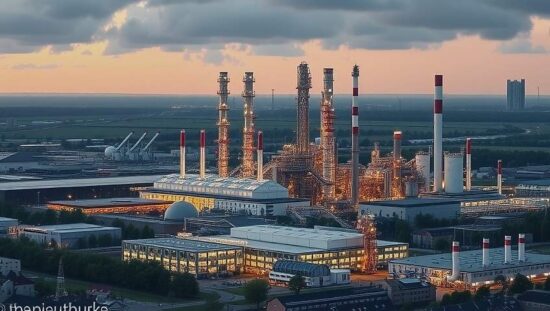BASF Aims to Cut Costs at Ludwigshafen Site by Half a Billion Euros by Year’s End
The German chemical company BASF is on track to reduce its ongoing costs at its Ludwigshafen site by 500 million euros by the end of the year, according to Katja Scharpwinkel, a member of the BASF board responsible for the site. This would bring the company closer to its 1.1 billion euro cost-cutting target for the end of 2026, with half of the goal already achieved.
The Ludwigshafen site, the world’s largest chemical plant, has been incurring losses since the Russian gas supply to Germany ended in 2022, following the start of the war in Ukraine. In response, the company has shut down some of its energy-intensive facilities.
However, Scharpwinkel emphasized that there are many cost blocks in Ludwigshafen that are not related to energy prices. “Low energy prices are no panacea” she said, adding that the company is focusing on the areas within its control to make the site profitable again. This includes the closure of facilities, organizational adjustments and job cuts.
BASF has already reduced its workforce in Ludwigshafen by around 2,500 employees since 2023 and has a standstill agreement in place until the end of the year, guaranteeing that no further job cuts will be implemented without agreement with the labor unions. The company is currently in talks with the unions to negotiate a new agreement, but the details of the planned job cuts and facility closures remain unclear.
In a positive note, Scharpwinkel emphasized the symbolic value of traditional site amenities, such as the company’s wine cellar and event space, which are expected to be preserved.
While the Ludwigshafen site is expected to become “stronger and slimmer” the company is investing around 10 billion euros in a new large site in southern China, which will be dedicated to meeting the growing demand in the region. Scharpwinkel rejected the notion that production capacities from Ludwigshafen would be relocated to China, stating that the new site will be an addition to the company’s global capacity, rather than a replacement for the Ludwigshafen site, which will continue to serve European customers as usual.





